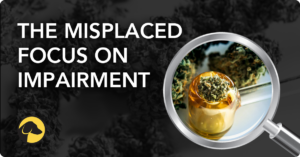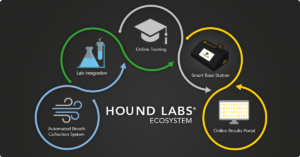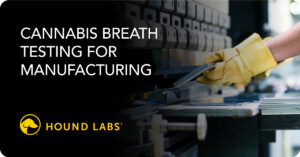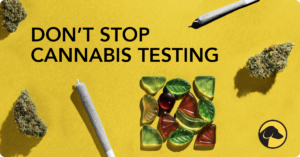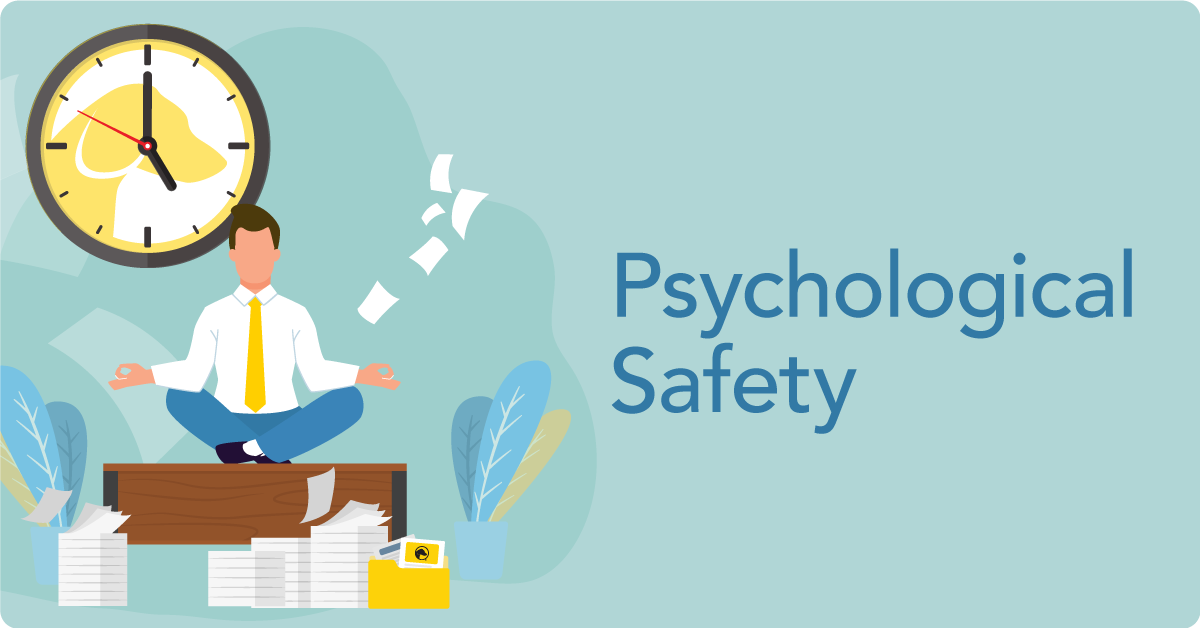
Can a Cannabis Breath Test Help Promote Psychological Safety?
From enforcing the use of Personal Protective Equipment to conducting regular fire inspections, your company likely follows a safety plan specific to your industry. Implementing those measures keeps employees safe, minimizes liability, and ensures adherence to laws and federal regulations. However, while many companies work to foster a culture of physical safety, they don’t always consider their employees’ psychological safety.
According to the Center for Creative Leadership®, a leadership development and research nonprofit, “psychological safety is the belief that you won’t be punished or humiliated for speaking up with ideas, questions, concerns, or mistakes.”
PSYCHOLOGICAL SAFETY AT WORK
Before I came to Hound Labs, I once worked for a company where my supervisor regularly singled me — and only me — out to practice presentations in front of the team. He would criticize me and my performance in front of them, and nobody stood up for me. I became extremely anxious and began to feel physically ill from this treatment.
When I finally stood up for myself and walked out of the meeting, Human Resources told me I needed to suck it up and go back in.
This environment was not psychologically safe for me or my colleagues.
I now know I wasn’t alone in this experience. In the U.S., only 30% of employees strongly agree that their opinions matter at work.1 If that number shifted from 3 in 10 to 6 in 10, Gallup data shows that turnover would go down by 27%, safety incidents would drop by an incredible 40%, and productivity would improve by 12%.2
I recently joined the Psych Health and Safety USA podcast as a guest speaker. The host, Dr. I. David Daniels, stressed that toxic work cultures could play a factor in cannabis use among employees.
“I’ve heard lots of stories recently of workers [that], because it is so psychologically unsafe at work, they [feel they] have to use a substance to be able to go and deal with their boss and deal with the environment. And then when they do that, they’re tested and found positive and lose their job, which puts them back in a position not to be able to take care of their families. [It’s] a big, vicious cycle.”
Creating a work environment that’s both physically and psychologically safe will benefit not only employees and employers but also the bottom line. But how does a cannabis breathalyzer fit into an employer’s efforts to improve psychological safety? I’ll break it down for you.
PROMOTING FAIRNESS
The primary reason for a drug testing program is to deter drug use. A drug testing policy lets employees know they may be tested. If that policy isn’t applied evenly across the organization, employees may perceive that the rules don’t apply to some people.
Uniformly testing all employees with a cannabis breathalyzer returns objective results that can help employers enforce company-wide policies. It lets all employees know that an organization’s testing policy is applied across the board, from executives to entry-level workers.
Objectivity and fairness are critical factors in feeling psychologically safe.
ENHANCING SAFETY
The National Institute on Drug Abuse reports 85% more injuries, 75% greater absenteeism at work, and 55% more industrial accidents among employees who tested positive for cannabis use versus those who did not.3
It’s clear that physical safety matters. What can be overlooked, however, is that physical safety and psychological safety go hand in hand. Consider a manufacturing plant where machinery is operating, assembly lines are moving, and even skid steers traverse the aisles. How might an employee who is using cannabis during the workday impact the safety of that workplace?
If an employee feels safe and healthy at work, they’re more likely to thrive in that workplace. Conversely, their performance – and perhaps that of the entire workplace – could suffer if they don’t feel safe. A psychologically safe work environment helps establish a trusting culture and ensures workplace drug testing policies are effectively communicated with all employees.
Implementing a recent use cannabis breath test can help stem many of the concerns employees may have about cannabis use during the workday. The ultra-sensitive Hound® solution measures THC in breath and returns an objective result. This test may help employers enforce policies that prohibit use immediately before or while at work but may not penalize cannabis use outside of work. Aligning test results to use that surrounds the workday empowers employers to deter use, attract and retain employees, and improve the safety and fairness of their workplace. Walking onto that manufacturing floor knowing that employees are tested for recent cannabis use may provide a psychological safety net.
NO JUDGMENT
More than 134 million Americans have access to legalized cannabis.4
If an employee chooses to participate in a legal activity outside of the workday, some may wonder if it’s fair that they risk their job over it. With many communities struggling to find employees, is it worth the expense of losing a quality employee by using outdated testing?
So, it’s understandable that an employee may not feel psychologically safe at work if cannabis is legal in their state. However, they can still be terminated for violating company policy if the employer uses a traditional drug test. Tests that use oral fluid, urine, and hair samples can detect cannabis for days, weeks, or months after use. A cannabis breath test detects only recent use, helping companies treat employees fairly while making informed, data-driven decisions about adherence to workplace policies.
LET’S TALK
If you have questions or want to discuss ways to improve psychological safety in your workplace, connect with me on LinkedIn. I would enjoy discussing your concerns and avenues to improve your team’s safety and performance.
Footnotes
1 Gallup
2 IBID
3 National Institute on Drug Abuse
4 U.S. Census

February 23, 2023
By JAIME FEINBERG
Share

